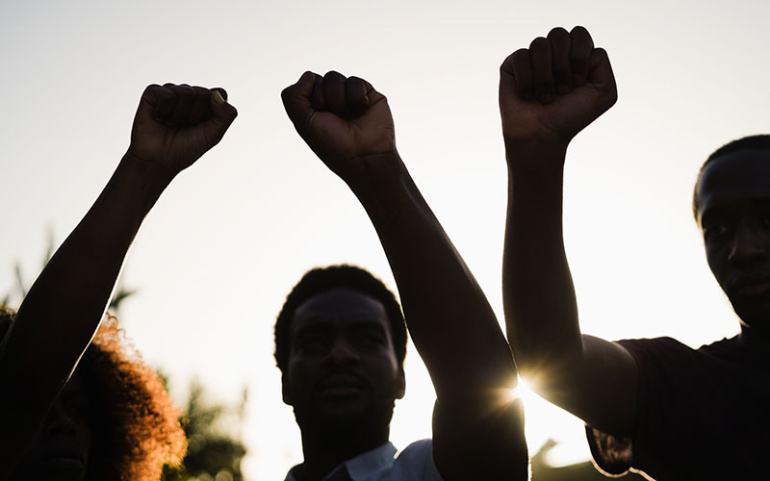*27-year-old Erica Garner, social justice activist and daughter of slain New Yorker Eric Garner died an untimely physical death during the recent holidays.
However, I believe she metaphorically died in July 2014 when NYPD officer Daniel Pantaleo choked her father Eric to death, after three long years filled with police department denials and justifications regarding the use of that prohibited choke hold which caused her father to utter those haunting words, “I can’t breathe, I can’t breathe!
A choke hold, according to NYPD policy, that is only to be used “when an officer’s life is in danger.” While allegedly selling illicit cigarettes on the sidewalk hardly seems “life threatening,” a grand jury declined to prosecute Pantaleo in Garner’s death.
The rationale often given by law enforcement personnel of “failure to comply with an officer’s orders” was insufficient and unconscionable. In other words, non-compliance – even if true based on my twenty years of LAPD training and experience, does not justify the use of deadly police force.
In September 2017, an NYPD Civilian Complaint Review Board (CCRB) recommended disciplinary action against Pantaleo in Garner’s death. Be clear, this finding means very little. While an independent civilian review board is desirable and necessary, their recommendation has no teeth. So, while the CCRB “recommended” discipline, the NYPD’s Commissioner has complete autonomy and is the final adjudicator and determines what discipline, if any is given.
Not that prior disciplinary action (or alleged complaints) always deter bad behavior. This was true in the 2012 fatal police shooting of Ramarley Graham, an unarmed black teenager from Brooklyn by former NYPD officer Richard Haste. Haste had six complaints filed against him before he killed Graham with a single bullet. All of which had been submitted in the span of 13 months, yet none were substantiated. According to ThinkProgress, “six complaints in one year, regardless of their outcome, is an extremely high number of complaints.” Haste’s conduct had been problematic and well documented. But Haste quit the NYPD before he could be fired.
Back to Pantaleo. According to CCRB reports, Pantaleo had been disciplined for police misconduct in the past and had been sued three times prior to the Garner incident. In each case, charges were dismissed, and in one case a settlement was reached.
The progressive news website ThinkProgress released leaked documents showing that Pantaleo had 14 individual allegations filed against him and seven disciplinary complaints; four of which had been sustained by investigators.
Understand, this behavior is not unique to NYPD. In 2015, when former Chicago police officer Jason Van Dyke a white, 14-year veteran, shot and killed LaQuan McDonald, he too had been accused of misconduct – 18 times before, according to data from the University of Chicago and the journalism non-profit Invisible Institute. And none of the 18 complaints against Van Dyke led to a penalty.
Disciplinary actions that allow officers to continue in their misconduct – or providing other officers with the gift of resignation only to be rehired by another police department or worse still – to remain on the job as in the case of Pantaleo, is insulting to the families. Administrative discipline can include a penalty of additional training, a written reprimand, reassignment, suspension or termination. So much for deterrence, right?
But in most cases, however, officers who commit abuse under the color of authority get little more than a slap on the wrist and in some instances the opportunity to move on to another police department and continue with their lives like Pantaleo when he married last year.


Add Comment